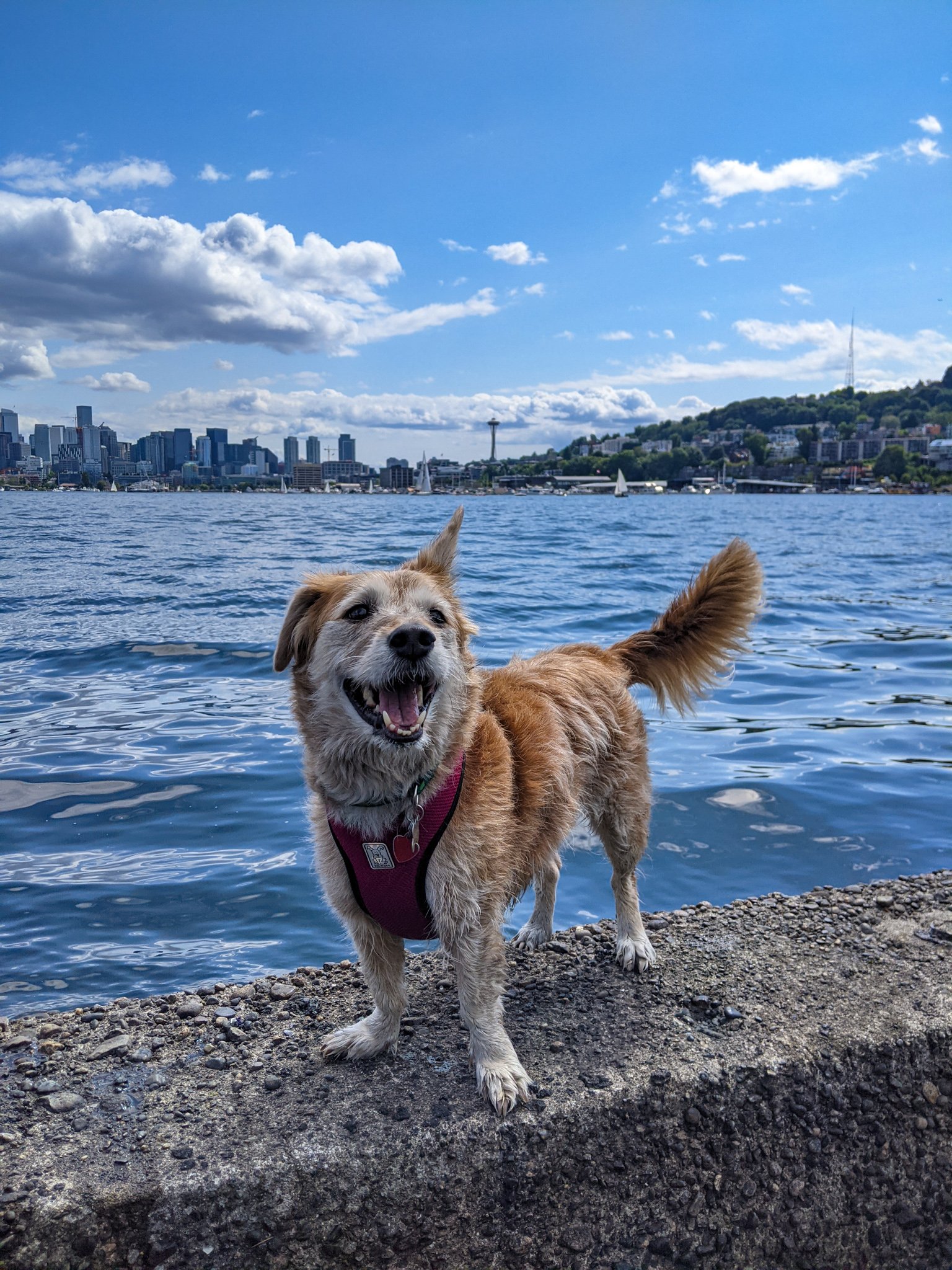
New Puppy Care Guide
Congratulations on your new puppy! There can be a lot of information to take in about caring for your new pet, but we are here to help!
1. Vaccinations
DA2PP or DHPP: This vaccine is given in a series and is one of the most important things you will ever do to protect your dog’s health. The vaccines are given at 7-8 weeks, 11-12 weeks, and 15-16 weeks of age.
Leptospirosis: Leptospirosis is a bacteria spread by wildlife and ingested by dogs drinking out of puddles. It can be contracted by people so it is a human health concern. It is given in a series of two injections 3-4 weeks apart followed by a yearly booster.
Rabies: This vaccination is first given at or after 15-16 weeks of age. The next booster is given in one year.
Bordetella: This vaccination is given to prevent contagious tracheobronchitis or “kennel cough.” If your dog will be going to boarding, day care or dog parks, this vaccine is especially important.
Remember to keep your puppy out of public parks and places with a large numbers of dogs until this initial series of vaccines is completed
2. Diet
In general, we recommend using products produced by major manufactures with “AAFCO” printed on the label and to avoid generic pet foods.
Examples of premium pet foods we would recommend are Science Diet, Royal Canin and Purina. Both canned and dry formulations are acceptable.
It is more important how much you feed than what brand of food you choose. Exercise is important, but the most important factor in weight control is the quantity fed.
3. House Training
The basic concept is to not allow your puppy the opportunity to make mistakes. Your puppy needs to be taken outdoors to the designated area frequently and shortly after each meal.
Use positive reinforcement and paise your puppy lavishly after performing.
Punishment for making mistakes tends to make puppies fearful and they may begin hiding their accidents. If you catch your puppy soiling in the wrong place, say “NO!” or “YUK!” then take the puppy outdoors
4. External Parasites (Fleas and Ticks)
We sell three types of flea and tick prevention: Revolution, Bravecto and Simparica Trio.
Revolution is a topical solution that you will apply once monthly. In addition to monthly flea control, it also is a heartworm preventive and effective against some internal parasites.
Bravecto is a chewable that is only given once every three months.
Simparica Trio is a pill that is given once a month that is excellent for flea and internal parasite control as well as being a heartworm preventive. A quick heartworm test is needed in dogs over 6 months of age prior to starting Simparica Trio. This will be done at their yearly annual exams.
5. Internal Parasites
We routinely administer deworming medication at each puppy visit because puppies are frequently born with ascarids (roundworms) and several treatments may be necessary to eliminate them.
It is a good idea to have a fecal exam done at the first or second visit, and yearly thereafter.
6. Spaying and Neutering
We typically recommend that large breed female dogs be spayed at approximately 6 months of age (prior to their first heat cycle).
Small breed dogs are also recommended to be spayed at 6 months of age. They are prone to retention of primary teeth and completing the spay at this age allows us to identify and extract retained primary teeth before they cause any long-term issues and without scheduling a second anesthesia.
Female dogs spayed prior to their first heat cycle enjoy a 99% reduction in the incidence of mammary (breast) cancer.
Male dogs not intended for breeding should be neutered to prevent prostate disease and minimize certain behavioral problems. Again, six months of age is a good time to perform this procedure.
For some breeds and lifestyles, spaying at one year of age is preferred. If so, your vet will discuss this with you personally.
7. Identification and Microchipping
We recommend some kind of identification for all pets. We offer Home Again microchipping.
This is a simple injection of an object that will be linked to your personal information. It is universal, so any vet or shelter in the US can scan the microchip and contact you should your pet be missing.
Many pet owners opt to have this placed during their pet’s spay or neuter procedures, but it can be completed at any time.
8. Dental Care
Many veterinarians feel that “appropriate dental care is the most important thing you can do to enhance and lengthen the quality of your pet’s life.”
Periodic, professional cleanings are necessary for most dogs. We will check the condition of your dog’s oral cavity and recommend appropriate care at your regularly scheduled exam.
Now is the time to gradually train your puppy to allow you to handle his/her mouth. Since your puppy is still teething, simple handling of the mouth is all that is recommended until six months of age.
Brushing the teeth should begin after six months of age and should be done on a regular basis. Remember that only the outside surfaces of the teeth need to be brushed and that pet toothpaste is optional.
Soft bristled brushes, finger-brushes, gauze or a dedicated wet washcloth around one’s finger are all acceptable
9. Chew Toys
Avoid chew toys that are very hard or that are less than 3 inches in diameter. The rule of thumb is that a chew toy should be soft enough to bend or be able to indent with your thumbnail.
Rubber chew toys are ideal. We do not recommend real bones as they have the potential to fracture teeth, as do nylabones and even fresh rawhide bones. Avoid fabric toys that can be chewed up and swallowed.
Puppies like to chew on almost anything! Be very careful of what your puppy is allowed to chew and swallow as intestinal foreign bodies requiring surgical removal are most common in dogs under one year of age.
10. Training
We wholeheartedly encourage crate training, as it is useful in so many situations. The crate should never be a place of punishment, but rather a safe place that the dog can retreat to when nervous. This practice also helps with potty-training!
Puppy training classes are best begun early, usually around 10 weeks old. There are many options in the Seattle area for training classes so be sure to do some research before selecting one.
